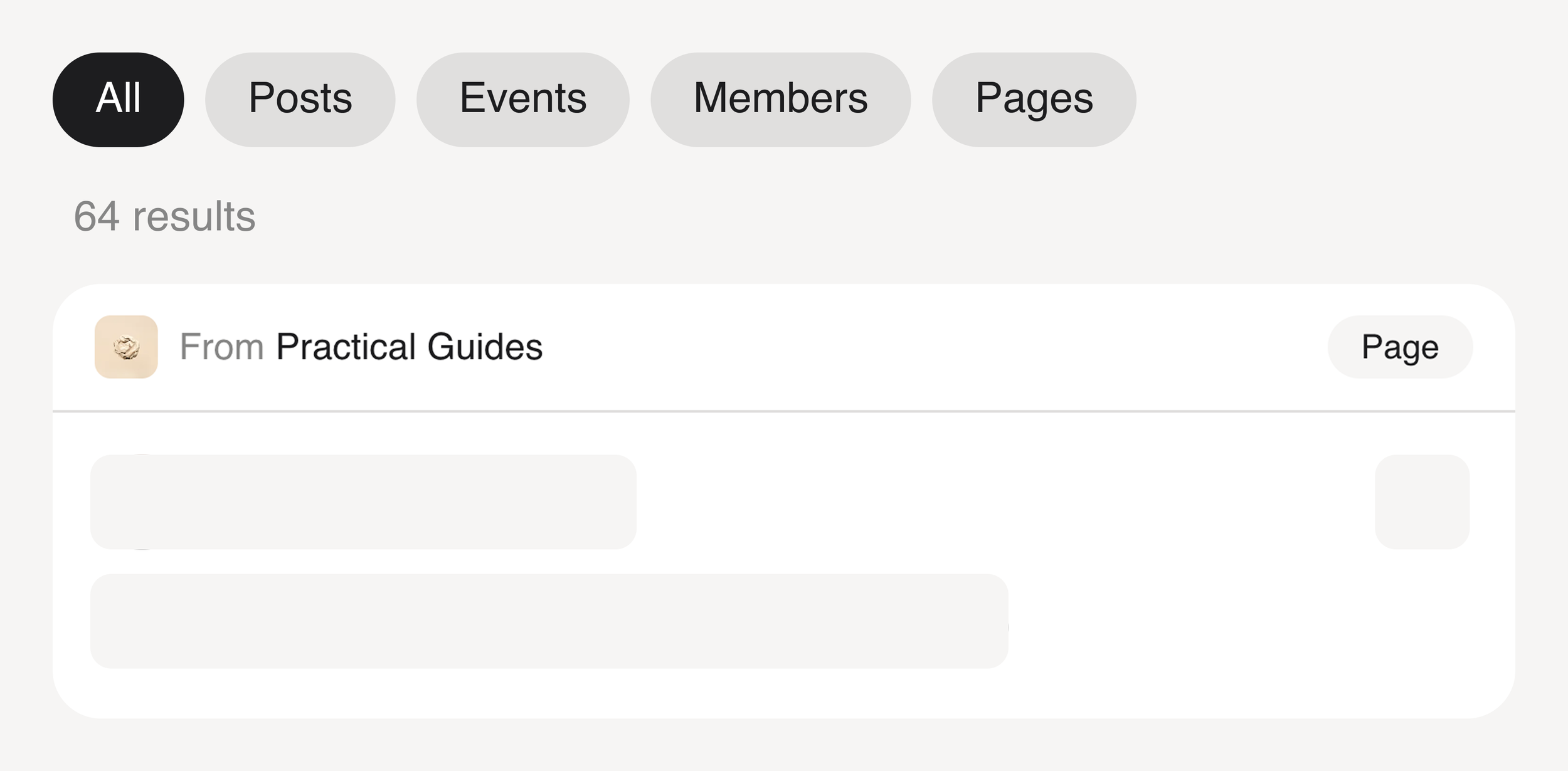Christian Mencke: "Creating a far-reaching network is a central pillar of SAP's corporate philosophy"
"I could talk to you for hours about community management" - Christian and Jonas in conversation
As an ecosystem company, SAP sees its alumni network as more than just a platform for maintaining contacts: the company uses connections with former employees as a strategic tool to promote long-term success and innovation.
In this interview, Dr. Christian Mencke, Senior Director, SAP Alumni Relations, gives our co-founder Jonas Lindemann some very personal insights into the importance and implementation of this network. He explains how a strong culture of networking and trust in networks serve as a success factor - and how former employees remain a valuable resource.
Christian, you define SAP not just as a single software company, but as a globally networked ecosystem company comprising more than 26,000 partners in over 140 countries. What does this look like in practice and what role does the SAP Alumni Network play in this ecosystem?
SAP'smission is to improve processes in the global economy with the help of a network of customers, partners, employees and thought leaders, because no organization in the world could accomplish such a task alone. The internal complexity would be far too high and the company would no longer be truly controllable. The idea behind the ecosystem approach is therefore to externalize parts of this task by deliberately relying on external partner companies. This makes it possible to successfully serve the diversity of market requirements.
A key consequence of this strategy is now the SAP Alumni Network, which does justice to the importance of former employees in this context. When employees leave SAP, it is important to keep in touch, as many remain active in the SAP ecosystem. We can see, for example, that around 50 percent of former employees who register in our alumni network take their next career step with an SAP partner company and another 30 percent with one of our customers. I therefore think it would be a big mistake to simply let former employees go, as they are important success factors for SAP's ecosystem.
Incidentally, SAP established its networking affinity culturally early on through the so-called "SAP coffee corner culture". The idea at the time was to deliberately create informal meeting places that promote exchange and networking. These informal networks help to shorten information flows, facilitate access to important resources and are therefore crucial for sharing knowledge and skills effectively. The wonderful thing is that networks don't care about the boundaries of a formal organization, they don't stop there. They continue to exist even after leaving a company and sometimes they even grow stronger. We call this "coffee corner culture extended".
Dr. Christian Mencke is Senior Director for SAP Alumni Relations (Photo: Christian Mencke)
"Informal networks help to shorten information flows and facilitate access to relevant resources."
For HR management at SAP, all of this means that cross-organizational thinking is required in order to leverage the potential of former employees and integrate them into the HR strategy. It is not enough to focus solely on current employees. At SAP, alumni relations is anchored in a holistic people experience concept: a comprehensive approach across the entire employee lifecycle - from the candidate experience and onboarding through to offboarding and the alumni experience.
In summary, SAP's goal is to create a strong and far-reaching network that addresses both internal and external stakeholders in order to promote long-term success and innovation. For us, this network strategy is not just lip service, but a central pillar of our corporate philosophy.
It's exciting to hear that you have such confidence in the power of networks. How exactly do you avoid acting in an alumni network being used against the interests of the company?
Our idea is that networks have a kind of natural selection. People who do not identify with our values or even pursue a destructive (hidden) agenda will generally not remain a part of the network for long, at least not beyond the status of a "cardboard corpse". This is because the central currency in networks is one's own social reputation. This determines the effectiveness of each member and therefore ultimately that of the entire network. Individual social reputation, above all fed by trustworthiness, one could also speak of "social capital", in turn stands and falls with authenticity, i.e. to a certain extent the predictability of speech and action as a source of trust. No one can permanently disguise themselves in such a way that they act inauthentically, perhaps even to the point of mendacity, against their own convictions in a network. The vast majority of people do not want to do this. For example, we can see that those employees who move to SAP's fiercest competitors are only represented in the alumni network to a very below-average extent. So you can rest assured that a functioning, well-established network doesn't need bouncers or a censorship department. At least the SAP Alumni Network has so far managed perfectly well without either...
This trust in the self-regulation of a network is a key aspect of our strategy. We don't want to control everything, but trust that the right culture and values will foster the desired connections and relationships.
That's an interesting approach. But how do you ensure that the right values and the desired culture are maintained in your networks?
Well, first of all, despite all the biographical diversity, there is of course a certain common sense among the members, i.e. a somewhat homogeneous set of values. Anyone who has successfully applied to and developed at SAP demonstrates an affinity for technology, internationality, cultural openness, a love of discourse and much more. The continuous sharpening of this canon and the focus along the company's development is then mainly achieved through targeted communication within the network. But be careful: as soon as something like this takes on manipulative traits, networks react highly allergically. Frankly, this has already happened to us: We once designed an alumni event in a somewhat, shall we say, puffery-like manner. That didn't go down well at all! That brings us back to authenticity. This is not only expected from network members in the form of natural persons, but also from a corporate player, i.e. from "SAP" in our case. We have learned from this and attach great importance to ensuring that our core values are not just empty words, but can be felt in every interaction. Events and direct interaction with our alumni are important elements in keeping this culture alive.
"Networks are highly allergic to manipulative moves."
If I understand you correctly, it's about creating trust and at the same time maintaining an open network that functions effectively despite minimal control. Do you think that this is a feasible approach for all companies, or are there specific conditions that favor SAP in this direction?
The basic principle - trust in people and networks - is certainly universally applicable. However, you need a cultural or visionary North Star that everyone can agree on to a certain extent. At SAP, this is primarily the ecosystem character, with a view specifically to alumni networks at many management consultancies, the widely accepted "up or out" approach in the people strategy, at universities, especially in the Anglo-American region, a culture of "giving back" professionally very successful graduates, and so on.
I regularly talk to our customers and users of our HCM solutions to explore their potential for a corporate alumni relations design or other network-based approaches, and it is actually always possible to work out such a North Star. I strongly recommend this as a first step! After all, there is a real danger that you will set out with a certain amount of initial enthusiasm to "start a network", then after six months ask yourself why exactly you are doing this, then at some point you will increasingly question the monetary and headcount investment - and the whole thing will eventually fall asleep again before it can really get going. A missed opportunity as it is written in the book, and in the worst-case scenario, the topic is then burned out for quite a while...
The willingness to relinquish control is also important. Networks are resilient in an almost fascinating way, and they scale very strongly. They are therefore very efficient. However, they are not always very targeted, so they are not necessarily particularly effective, at least from a classic, mechanistic point of view. You can communicate something into them, and if you have done your job as a network manager reasonably well, then you can safely assume, or confidently trust, that something positive will happen in the network in line with the strategic objective. But exactly what and where is not always easy to predict.
"Networks are resilient in an almost fascinating way, and they scale very strongly."
How do you deal with negative impulses within the network and promote the positive aspects?
You should not react hastily to negative narratives. The network often regulates itself via the "social filter function" mentioned earlier. Calmness and realistic expectations are crucial. A network should not be seen as a perfect problem-solving tool, but as a platform for positive reinforcement and trust.
What role does pragmatism play in network management, and how important is the personal commitment of the members?
Effective network management requires pragmatism in the sense that, after the important clarification of the fundamental strategic direction - keyword: North Star - you simply get started, communicate into the network and set a few impulses. Lowbrainer: However, this will hardly bear fruit if you don't focus on the goals and interests of the members, and of course you have to know them. In other words, especially at the beginning, but also in the long term, it is very important to regularly obtain feedback from alumni and then incorporate this flexibly into the network work. If you take this to heart, it is almost inevitable that members will be sufficiently committed.
Can you give us a tip on how best to promote a network culture?
A healthy error culture and openness are crucial: networks should offer the opportunity to learn from mistakes and be open to new approaches, because learning from experience and continuous adaptation are important. Visionary goals should be combined with a flexible, learning and pragmatic attitude.
Thank you, you have touched on many important conceptual aspects of network management in a business context. But how does it all work in practice? Where and how does the network become tangible and visible for the individual?
We operate a platform specially tailored to the requirements of an alumni relations network, which - as a development of an SAP partner company - can be integrated very well into SAP's HCM product world. Here, our alumni can register, search for other members or vacancies at SAP, register for events and other benefits, post their own alumni story, define their user preferences, such as which messages they would like to receive and much more.
The range of functions is basically not dissimilar to what we know from LinkedIn or XING, but it is much more flexible and agile and can be adapted to the needs of the network, and we have already discussed above how important this flexibility is to keep network members engaged ...
... and of course you have full control over the design and user experience on your own platform. How important is it for your community to maintain the typical SAP look and feel?
The platform integrates well into the SAP SuccessFactors HCM world and reflects our corporate identity. This design creates a familiar feeling by making users feel a bit like they are back on the SAP intranet. It is intended to support an emotional "homecoming feeling". So to speak - transferred to the virtual world - as if they were walking through the corridors of an SAP office again for a short while, meeting people, reading wall newspapers and so on.
Tracking the user experience is also important. Who logs in, when and how often? How often are profiles updated? What are the opening and click-through rates of our emails? Both aspects are important components of our platform strategy.
That's easy to understand. But I assume that you also use LinkedIn for your networks, right?
We use LinkedIn to increase awareness and as a supplement to the alumni platform. LinkedIn offers a wide reach and a certain communicative scatter effect beyond the actual alumni community, while our platform is used for targeted interactions and specific requirements. Coordinated, overlap-free use of different portals and media is crucial here.
Speaking of interactions: How do you deal with it when there is a low frequency of interaction on the alumni platform?
A low frequency at an individual level is normal and nothing to worry about at first. We can recognize wave patterns here, a kind of "alumni lifecycle". Alumni who have just left the company tend to make themselves scarce on the alumni portal at first. A job change is often a drastic, stressful event, and the new alumni simply have more urgent things to do. This tends to change after a few months, when their own employment history or similar factors suggest that they should take a more regular look at SAP and its ecosystem. But even if there is silence for a while, we can see that the emotional bond with the company does not usually rust as a result. Regular, targeted communication is crucial to ensure that the bond doesn't break, and if you don't always get something back from everyone straight away, you shouldn't let this frustrate you.
The situation is different when commitment generally declines. This is a serious alarm signal! We once noticed that the "read" and "click-through" rates of our newsletter format were eroding across the board and permanently. We then took a look at this, asked alumni and realized that the content had become too arbitrary. A bouquet of anything and everything. The value add was simply no longer sufficiently clear to the reader. We then adapted this by creating a mail portfolio with different, clearly differentiated content and focal points, and then the values started to improve again.
That's a very good pragmatic approach. How do users benefit from the platform despite varying levels of interaction, and what strategies help them not to forget the network?
I am always impressed by the fact that both former and current employees show great interest in understanding the origins, or to use a big word here: the founding myth of SAP. This interest indicates a deep emotional connection that should not be underestimated. For example, when former employees meet in old buildings, they feel like they did on the first day. This emotional connection as a result of familiarity and togetherness is the cement that holds the company together culturally over years and decades.
To maintain this connection, balanced communication that addresses both emotional and rational business interests is important. Regular updates on new developments such as artificial intelligence, information on job opportunities or even surveys on the individual offboarding experience keep the alumni network active and useful. More emotional initiatives such as a "Mindfulness @ SAP" session or a live demo of a 40-year-old SAP R/2 system ensure that the network foundation of familiarity and togetherness does not erode.
Dear Christian, thank you very much for the exciting insights into your community strategy!





